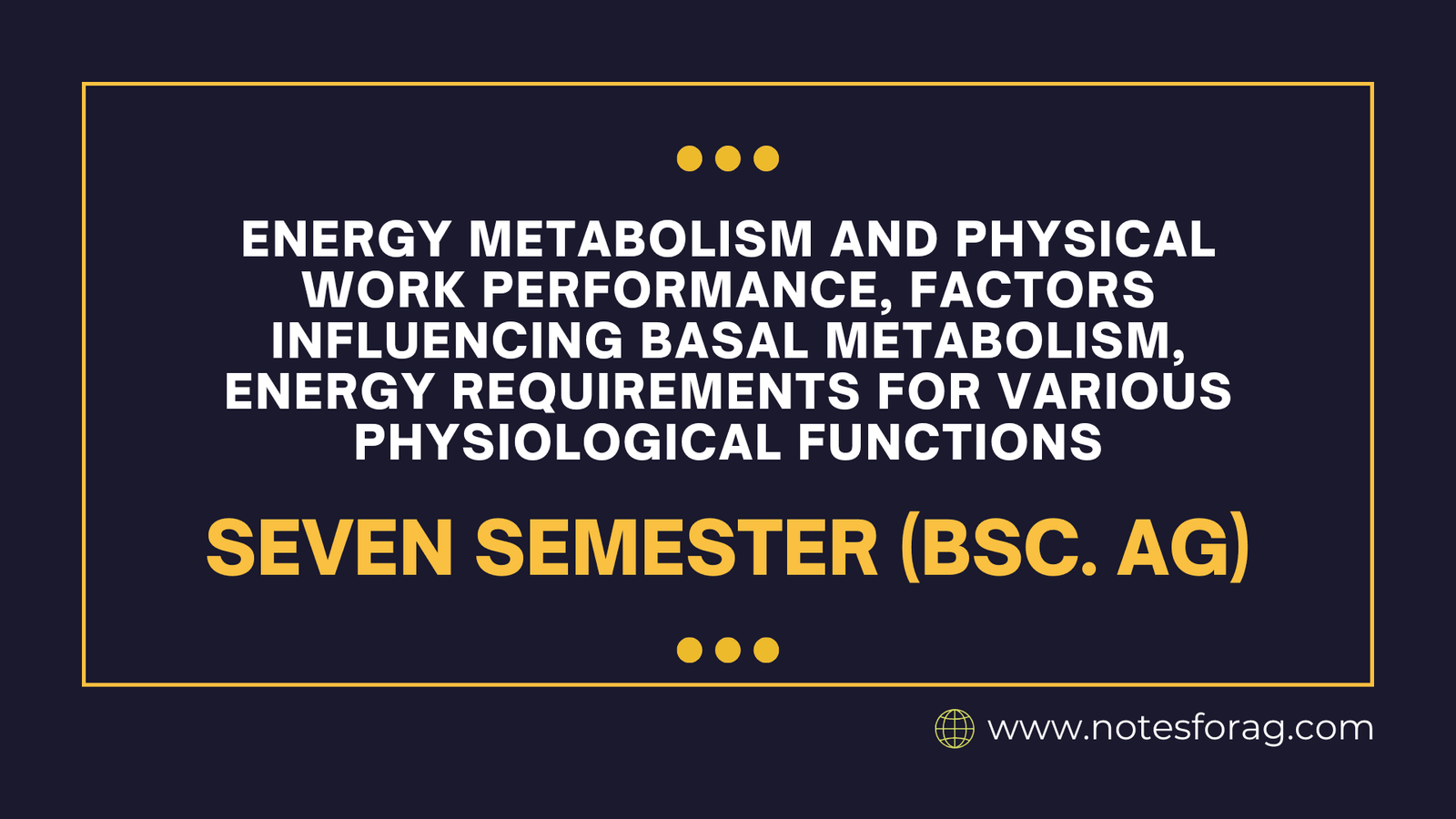Define Energy Metabolism ?
Energy metabolism is the process by which the body converts food into energy for vital functions, from cellular activity to physical movement. This energy powers everything we do, from breathing and thinking to exercise.
Also, Energy metabolism refers to how our bodies transform food into usable energy. This energy powers everything we do, from basic cellular activities to demanding physical tasks. The efficiency of this system greatly influences physical performance. When metabolism is effective, our bodies can perform tasks with less fatigue, but if it’s inefficient, we may tire out more quickly, reducing our physical capabilities.
Efficient energy metabolism provides steady energy levels, which helps enhance physical performance and reduce fatigue. Inefficient energy metabolism can lead to quicker exhaustion, affecting one’s physical work and stamina.
Table of Contents
The primary energy source within our cells is a molecule called adenosine triphosphate (ATP). Our bodies produce ATP by breaking down carbohydrates, fats, and proteins. Carbohydrates are the body’s preferred energy source, especially for intense activities, while fats are mainly used during prolonged, moderate-intensity activities. Proteins are less commonly used as an energy source, as they are primarily needed for tissue repair and building.
Energy Systems and Physical Work
During physical activity, the body relies on three main energy systems:
Phosphagen System
This system provides instant energy for brief, high-intensity bursts like sprinting or lifting weights. It depends on creatine phosphate in muscles and generally lasts about 10-15 seconds.
Anaerobic Glycolysis
This system operates without oxygen and supplies energy for moderate-duration, high-intensity activities like running. It produces lactic acid, which can lead to muscle fatigue over time.
Aerobic System
This slower, oxygen-dependent system provides energy for longer, moderate-intensity activities like jogging. It primarily uses stored fats and carbohydrates.
For any activity, the body may utilize a combination of these energy systems based on the activity’s duration and intensity.
Factors Influencing Basal Metabolism
Basal metabolism, or basal metabolic rate (BMR), is the energy the body needs at rest to maintain essential functions, like breathing, heart function, and temperature regulation. Various factors affect BMR:
Age: BMR generally decreases with age, as muscle mass decreases while fat stores tend to increase. Muscle is more metabolically active than fat, so as muscle decreases, so does BMR.
Gender: Men usually have a higher BMR than women because they typically have more muscle mass. Hormonal differences also play a role; testosterone increases muscle mass, while estrogen encourages fat storage.
Body Composition: A person with more muscle mass will usually have a higher BMR, as muscles require more energy than fat cells. This is why people who exercise frequently tend to have a higher BMR.
Genetics: Some individuals have a naturally faster or slower metabolism due to genetic factors that influence how efficiently they process energy.
Hormones: Thyroid hormones, particularly thyroxine, play a key role in regulating metabolism. Higher thyroid levels speed up BMR, while lower levels slow it down.
Environmental Temperature: Colder environments can increase BMR temporarily, as the body expends more energy to stay warm, whereas in warm climates, the BMR might slightly decrease.
Diet and Nutrition: Both the quality and quantity of food intake impact metabolism. The body may lower BMR if calorie intake is consistently too low.
Physical Activity: Exercise can boost BMR, especially if it leads to an increase in muscle mass. Physical activity stimulates metabolic processes, supporting increased energy requirements even at rest.
Energy Needs for Various Physiological Functions
Beyond BMR, energy requirements vary with several physiological functions, such as growth, digestion, physical activity, and recovery from illness.
Growth and Development
Energy needs are higher during growth stages like childhood, adolescence, and pregnancy, as the body is building new tissue. Pregnancy and breastfeeding also increase energy needs to support the fetus and milk production.
Physical Activity
Exercise raises energy requirements based on intensity, duration, and frequency. Athletes, for example, need extra energy for muscle repair and to support training. Regular activities like walking also increase daily energy use beyond BMR.
Thermic Effect of Food
Digesting and processing food requires energy, called the thermic effect of food (TEF). Protein requires the most energy to process, followed by carbohydrates, then fats. TEF accounts for roughly 10% of total daily energy expenditure.
Illness and Recovery
Illness or injury increases energy needs, as immune responses, tissue repair, and fevers all require extra energy to help the body recover.
Stress
Physical and psychological stressors can impact energy needs. Physical stress from injury raises energy demand, and psychological stress can alter hormone levels like cortisol, affecting metabolism and energy storage.
Environmental Adaptation
Energy requirements can shift with climate; the body may need more energy to stay warm in cold environments or to cool down in hotter climates.
In summary, by understanding energy metabolism, basal metabolism, and energy needs for various physiological functions, we can make better choices for nutrition, exercise, and overall health. Energy metabolism can help individuals make informed choices for diet, exercise, and lifestyle, supporting better physical performance and long-term health. A balanced diet and consistent physical activity optimize metabolism, enhancing both daily performance and long-term well-being.
Frequently Asked Questions (FAQ)
What is energy metabolism?
Energy metabolism is the process by which the body converts food into energy for vital functions, from cellular activity to physical movement. This energy powers everything we do, from breathing and thinking to exercise.
How does energy metabolism impact physical performance?
Efficient energy metabolism provides steady energy levels, which helps enhance physical performance and reduce fatigue. Inefficient energy metabolism can lead to quicker exhaustion, affecting one’s physical work and stamina.
Related Articles

